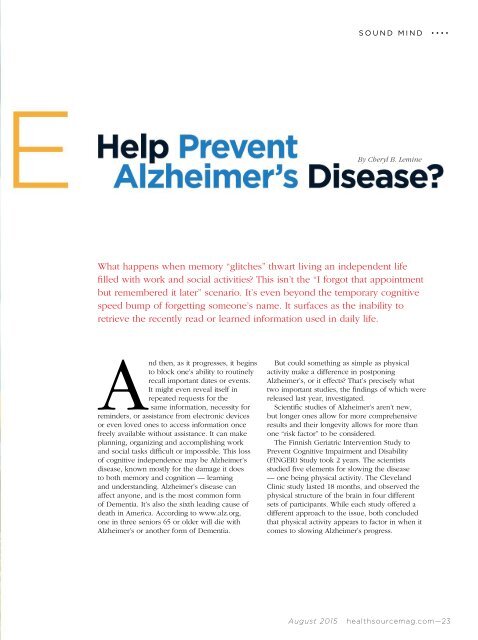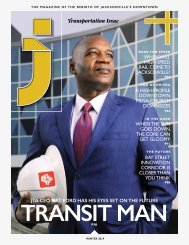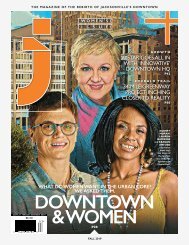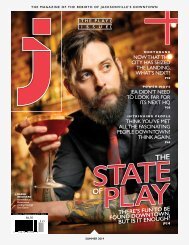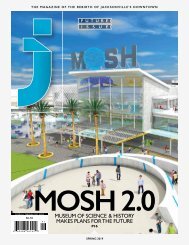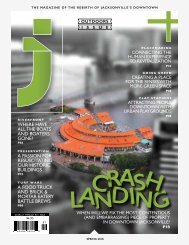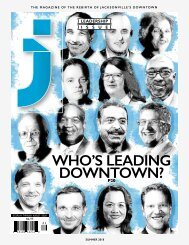HealthAug15
You also want an ePaper? Increase the reach of your titles
YUMPU automatically turns print PDFs into web optimized ePapers that Google loves.
SOUND MIND ••••<br />
By Cheryl B. Lemine<br />
What happens when memory “glitches” thwart living an independent life<br />
filled with work and social activities? This isn’t the “I forgot that appointment<br />
but remembered it later” scenario. It’s even beyond the temporary cognitive<br />
speed bump of forgetting someone’s name. It surfaces as the inability to<br />
retrieve the recently read or learned information used in daily life.<br />
And then, as it progresses, it begins<br />
to block one’s ability to routinely<br />
recall important dates or events.<br />
It might even reveal itself in<br />
repeated requests for the<br />
same information, necessity for<br />
reminders, or assistance from electronic devices<br />
or even loved ones to access information once<br />
freely available without assistance. It can make<br />
planning, organizing and accomplishing work<br />
and social tasks difficult or impossible. This loss<br />
of cognitive independence may be Alzheimer’s<br />
disease, known mostly for the damage it does<br />
to both memory and cognition — learning<br />
and understanding. Alzheimer’s disease can<br />
affect anyone, and is the most common form<br />
of Dementia. It’s also the sixth leading cause of<br />
death in America. According to www.alz.org,<br />
one in three seniors 65 or older will die with<br />
Alzheimer’s or another form of Dementia.<br />
But could something as simple as physical<br />
activity make a difference in postponing<br />
Alzheimer’s, or it effects? That’s precisely what<br />
two important studies, the findings of which were<br />
released last year, investigated.<br />
Scientific studies of Alzheimer’s aren’t new,<br />
but longer ones allow for more comprehensive<br />
results and their longevity allows for more than<br />
one “risk factor” to be considered.<br />
The Finnish Geriatric Intervention Study to<br />
Prevent Cognitive Impairment and Disability<br />
(FINGER) Study took 2 years. The scientists<br />
studied five elements for slowing the disease<br />
— one being physical activity. The Cleveland<br />
Clinic study lasted 18 months, and observed the<br />
physical structure of the brain in four different<br />
sets of participants. While each study offered a<br />
different approach to the issue, both concluded<br />
that physical activity appears to factor in when it<br />
comes to slowing Alzheimer’s progress.<br />
August 2015<br />
healthsourcemag.com—23


